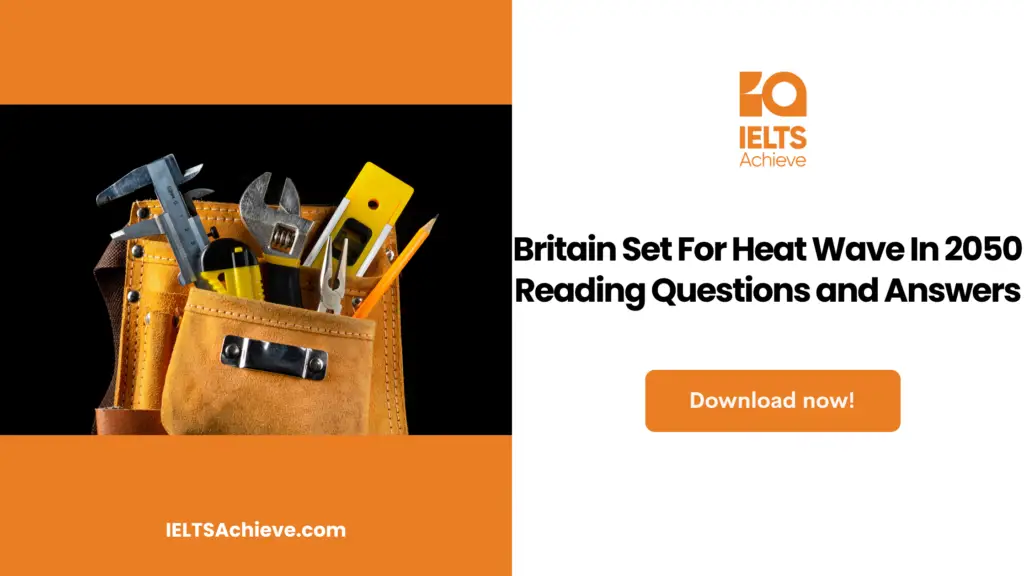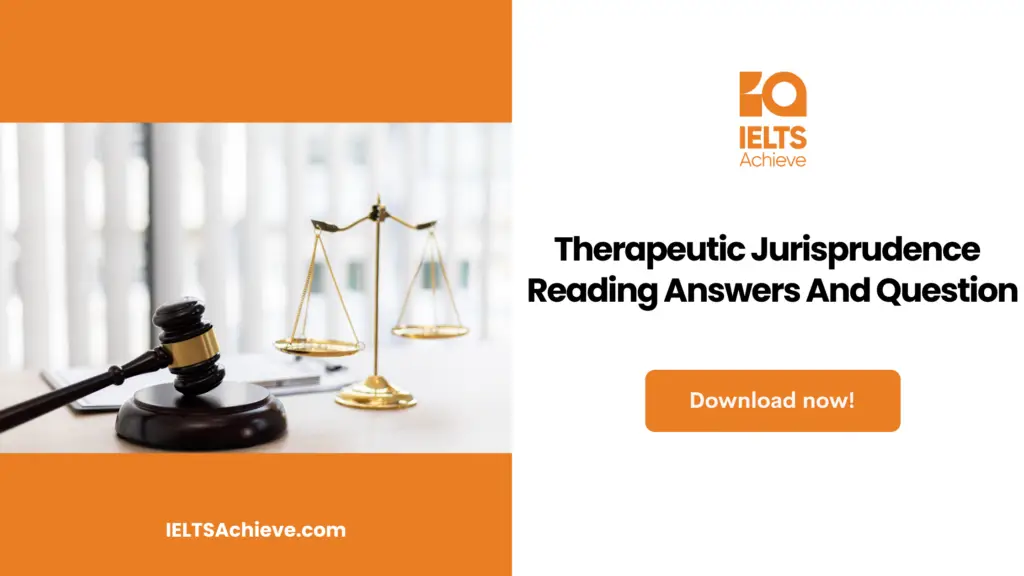The Blog post contains the following IELTS Reading Questions:
- IELTS Reading Matching Headings
- IELTS Reading Sentence Completion
Stay informed and prepared for success – Explore our comprehensive Reading Test Info page to get valuable insights, exam format details, and expert tips for mastering the IELTS Reading section.
IELTS Reading passage – Britain Set For Heat Wave In 2050

Britain Set For Heat Wave In 2050
A As you sit in your home or office and look at the rain running relentlessly down the window pane, you will almost certainly be thinking, “This is more like February, when will summer arrive?” This summer seems to have been colder and wetter than ever. So here is some good news. The Meteorological Office computer has analysed weather patterns over the last 100 years and suggests that the weather will get both drier and warmer – but in fifty year’s time.
B Regardless of the effects of global warming it seems as though we can expect the average temperature in the UK to increase by 1.5°C. In parts of the UK we can also expect rainfall to decrease. Probably this will be most apparent in the south and east of Britain where rainfall is already the lowest in the UK. It looks as though parts of the UK may be prone to drought by the middle of the next century. This has already been noticed in the English wine making industry. John Gore Bullingham, who makes the award winning Carter Castle sparkling wine, has noticed that his grapes ripen two or three weeks earlier than they did when he started the vineyard in 1955.
C All of this seems hard to believe. At present we are in the middle of a cold, grey and distinctly sodden July. It seems as though summer will never arrive. How does this observation fit with Met Office predictions of a warmer, drier Britain? The Met Office’s chief weather forecaster Claire Miles explains, “At present the weather over the whole of North America, the North Atlantic and Europe has become temporarily blocked. Those areas which have good weather, such as Southern Europe and the Balkans, can expect to keep it and develop heat waves. Those areas which have bad weather, such as the UK and Northern France, will keep the rain and unseasonable cold.”
D We seem to have kept it for some time already. In the last two weeks of June and first two weeks of July the UK has had an average daily temperature of 12.9oC. Although it is hard to believe, this is only 1.7°C lower than normal for the time of year. But what makes it seem so cold is that in the same period there has been only three hours of sunshine a day; less than half the average for the period. This, combined with northerly winds, makes it seem much colder. It may get a little warmer towards the end of the month but not much.
E Blocked weather does not have to be bad for the UK. The glorious summer of 1976 was caused by the same phenomenon. In that case the weather patterns came to a standstill with hot rather than cold weather over the UK. Even now, parts of Europe are suffering their highest temperatures for a generation. In Athens last week the temperature rose to 48.5oC, a temperature record for Europe. The settled and warm weather which would normally come to Britain on prevailing westerly winds is now stuck over the North Atlantic, sandwiched between unusually cold and wet weather in Northern Europe and the East coast of North America.
F “Basically,” says Miss Miles, “you’ve got low pressure centred on the UK and the eastern US and two huge high pressure areas centred on the Atlantic and the Balkans. Normally high altitude winds would blow west to east and bring the weather with them. They form waves so in somewhere like the UK we usually get alternate high and low pressure systems passing over us. These bring, successively, warm and sunny, then colder and wetter weather and there is a pretty fixed boundary between the two. But this year the waves have been more pronounced. The waves become so big they turn into cells with the winds within them going round in circles. The normal west to east winds stop and the weather remains static for some time. It could stay like this for the whole summer.”
Unlock your full potential in the IELTS Reading section – Visit our IELTS Reading Practice Question Answer page now!
Recommended Questions:
Renewable Energy IELTS Reading Question with Answer
Questions 1-5
Reading Passage 1 has six paragraphs A – F. Choose the most suitable headings for paragraphs A – F from the list of headings below. Write the appropriate number i – viii in boxes 1 – 5 on your answer sheet. The first one has been done for you as an example. There are more headings than paragraphs, so you will not use them all
Paragraph Headings
i The process of blocked patterns
ii Better weather in Britain soon
iii The highs and lows of weather
iv Record UK temperatures
v The weather now and in the future
vi The weather now
vii Met office forecasts
viii Weather blocking in the past
1 Paragraph B
2 Paragraph C
3 Paragraph D
4 Paragraph E
5 Paragraph F
Ready to conquer Matching Headings questions? Click here to learn essential tips and techniques for matching headings accurately to paragraphs or sections in the IELTS Reading section.
Questions 13 and 14
Complete the following paragraph based on information in Reading Passage 1 using NO MORE THAN THREE WORDS from the Reading Passage for each answer. Write the answers in boxes 13 – 14 on your answer sheet.
The weather in Britain is expected to change in the next fifty years. The temperatures will rise and in some areas the amount of rain will certainly (13)…………………………….Indeed it has been forecast that some regions of England will be (14)……………………….. by 2050.
Enhance your sentence completion skills in the IELTS Reading section. Click here to access our comprehensive guide and learn effective strategies for filling in missing words or phrases in sentences.
Unlock your full potential in the IELTS Reading section – Visit our IELTS Reading Practice Question Answer page now!
Recommended Questions:

